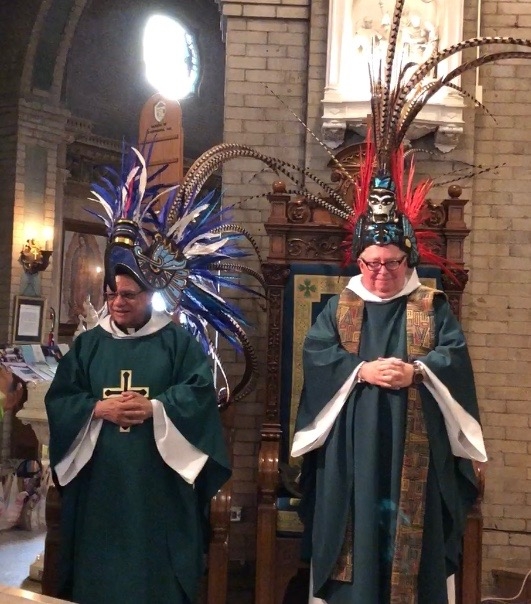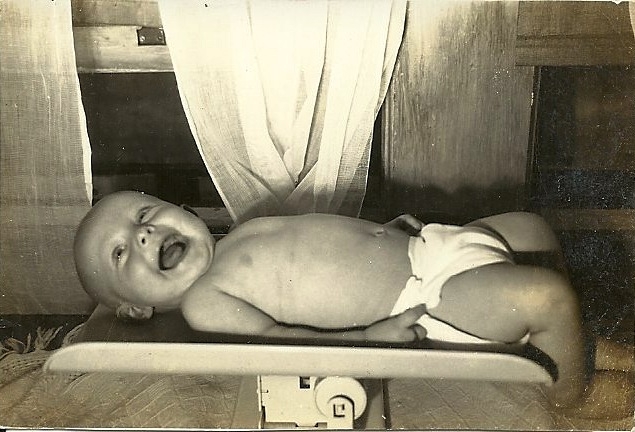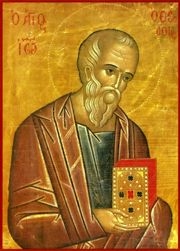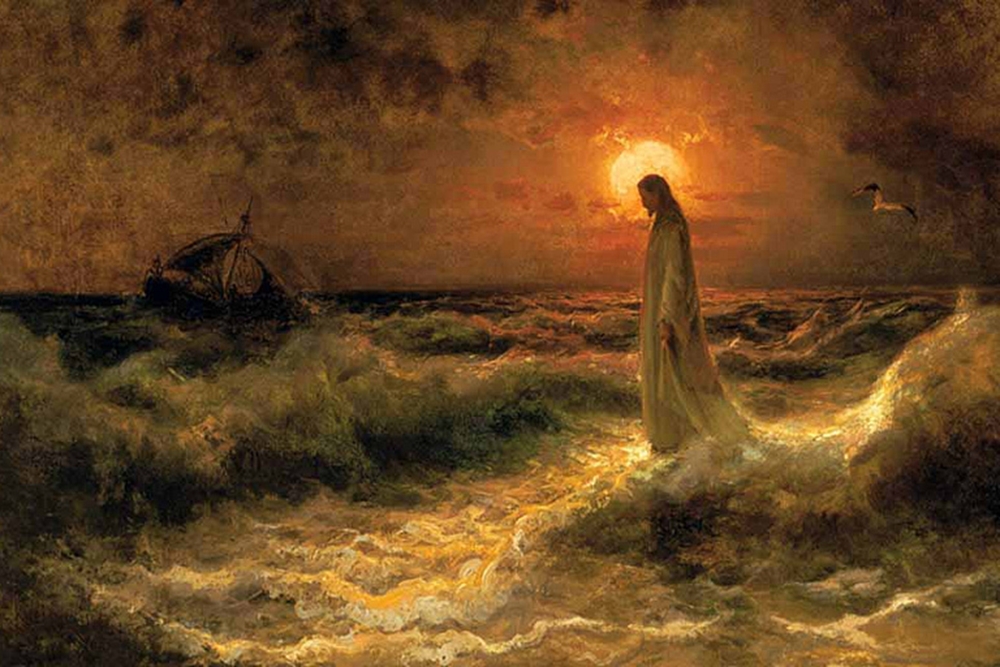These reflections are a result of more than 40 years of ministry as a Roman Catholic priest. Most of these years I spent in the Diocese of Charlotte which covers Western North Carolina. Now I am retired, and live in Medellín, Colombia where I continue to serve as a priest in the Archdiocese of Medellín.

It happened in those days that Jesus came from Nazareth of Galilee
and was baptized in the Jordan by John.
On coming up out of the water he saw the heavens being torn open
and the Spirit, like a dove, descending upon him.
And a voice came from the heavens,
“You are my beloved Son; with you I am well pleased.”
(Mk 1:7-11)
The Baptism of the Lord marks the beginning of the public ministry of Jesus in the synoptic gospels: Mark, Matthew and Luke. In the current liturgical calendar, the Feast of the Baptism of Jesus marks the end of the Christmas Season. The revelation of Jesus as the Beloved Son connects with our own baptism in which we become the dear children of God. The photo today is from the Church of the Holy Spirit in Cuernavaca, Mexico.

Responsorial Psalm
RESPONSORIAL PSALM
R. The Lord takes delight in his people.
Sing to the LORD a new song
of praise in the assembly of the faithful.
Let Israel be glad in their maker,
let the children of Zion rejoice in their king.R.
Let them praise his name in the festive dance,
let them sing praise to him with timbrel and harp.
For the LORD loves his people,
and he adorns the lowly with victory.
R. The Lord takes delight in his people.
(Psalm 149)
The Christmas Season comes to end tomorrow with the Feast of the Baptism of the Lord. But in some countries the Manger Scene stays up until the Feast of the Presentation of the Lord on February 2nd. The Responsorial Psalm speaks of God delighting in us and equally our praising God in the festive dance. Sounds like a wonderful fiesta!

It happened that there was a man full of leprosy in one of the towns where Jesus was;
and when he saw Jesus,
he fell prostrate, pleaded with him, and said,
“Lord, if you wish, you can make me clean.”
Jesus stretched out his hand, touched him, and said,
“I do will it. Be made clean.”
And the leprosy left him immediately.
(Lk 5:12-16)
Touching lepers got Jesus into trouble with everyone—not just with the Law of Moses and the religious authorities, but also with his own disciples. And now, two thousand years later, things haven’t changed one bit. Thanks to my mom, I celebrate a birthday today!

Beloved, we love God because
God first loved us.
If anyone says, “I love God,”
but hates his brother, he is a liar;
for whoever does not love a brother whom he has seen
cannot love God whom he has not seen.
This is the commandment we have from him:
Whoever loves God must also love his brother.
(1 Jn 4:19-5:4)
They tell a story about old Saint John. Every liturgy he would get up and say to the people, “Little children, let us love one another!” and then he would sit down. After several weeks of this, the new deacon pulled old John aside and said, “Every week you tell us the same thing. When are you going to teach us something new?” Old John answered, “When you’ve done what I’ve asked you, I can teach you something new. 'Little children, let us love one another!'” After the troubling events yesterday on the Mall and in the Capitol of the United States, perhaps we need old Saint John's message more than ever: "Let us love one another!"

Beloved, if God so loved us,
we also must love one another.
. . . .
God is love, and whoever remains in love remains in God and God in him.
(1 Jn 4:11-18)
But when they saw him walking on the sea,
they thought it was a ghost and cried out.
They had all seen him and were terrified.
But at once he spoke with them,
“Take courage, it is I, do not be afraid!”
(Mk 6:45-52)
The First Letter of John seems to repeat over and over again, “We must love one another.” And for good reason, sometimes we forget that it means nothing to say that “God loves us” if we don’t in turn love one another. And to terrified disciples in every age, the Lord simply reminds us, “Take courage, it is I, do not be afraid!”



